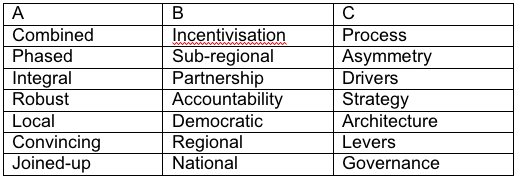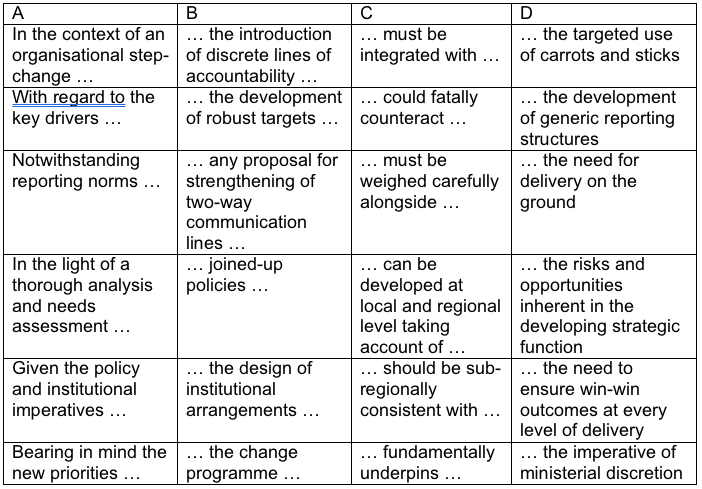The production of a Government document will require interminable meetings. This is partly because Ministers are sensitive to the implications of certain words and phrases. You and your colleagues must, for instance, take great care to use these irregular verbs properly:
I give confidential press briefings
You leak
He is being charged under Section 2A of the Official Secrets Act.I have an independent mind
You are an eccentric
He is round the twist.I am a statesman
You are a freedom fighter
He is a terrorist.I am a global citizen
You are an expat
He is an immigrant.We are expats
You are immigrants
They are a flood of refugeesWe make the pound more competitive
You cause a run on the currency
They make everyone in the country poorer.I am leaving the Government at the PM’s request
You have been relieved of your Ministerial duties
He/she has been sackedI am popping out to buy a few bits and bobs just in case
You are over-reacting
He/she is panic buyingI invest in people's needs
You tax and spend
They recklessly expand the reach of the state into ordinary people's lives
Take care, too, when using certain nouns and adjectives. These pictures may help.


Drafting meetings ...
... fall into various categories:
(a) Those where participants decide to re-open policy discussions that have long since been settled.
(b) Those where participants agree that everything in the plan is so important that it needs to be “highlighted” and “brought out more” usually by reordering the text to put them before everything else that needed to be “highlighted” last week.
(c) Those that are positively incomprehensible. It helps to be able to join in these, though a little preparation is normally necessary. This involves jotting down impressive-sounding phrases from previous meetings and reproducing them in random order.
Table 1 is for meetings on housing institutional reform, but the principles can be applied to any subject. For that snap phrase, just cobble together words from each column in sequence.

Or, for that more rounded contribution, try the same principle with Table 2. A series of sentences can even be put together, demonstrating a thorough grasp of the subject.
